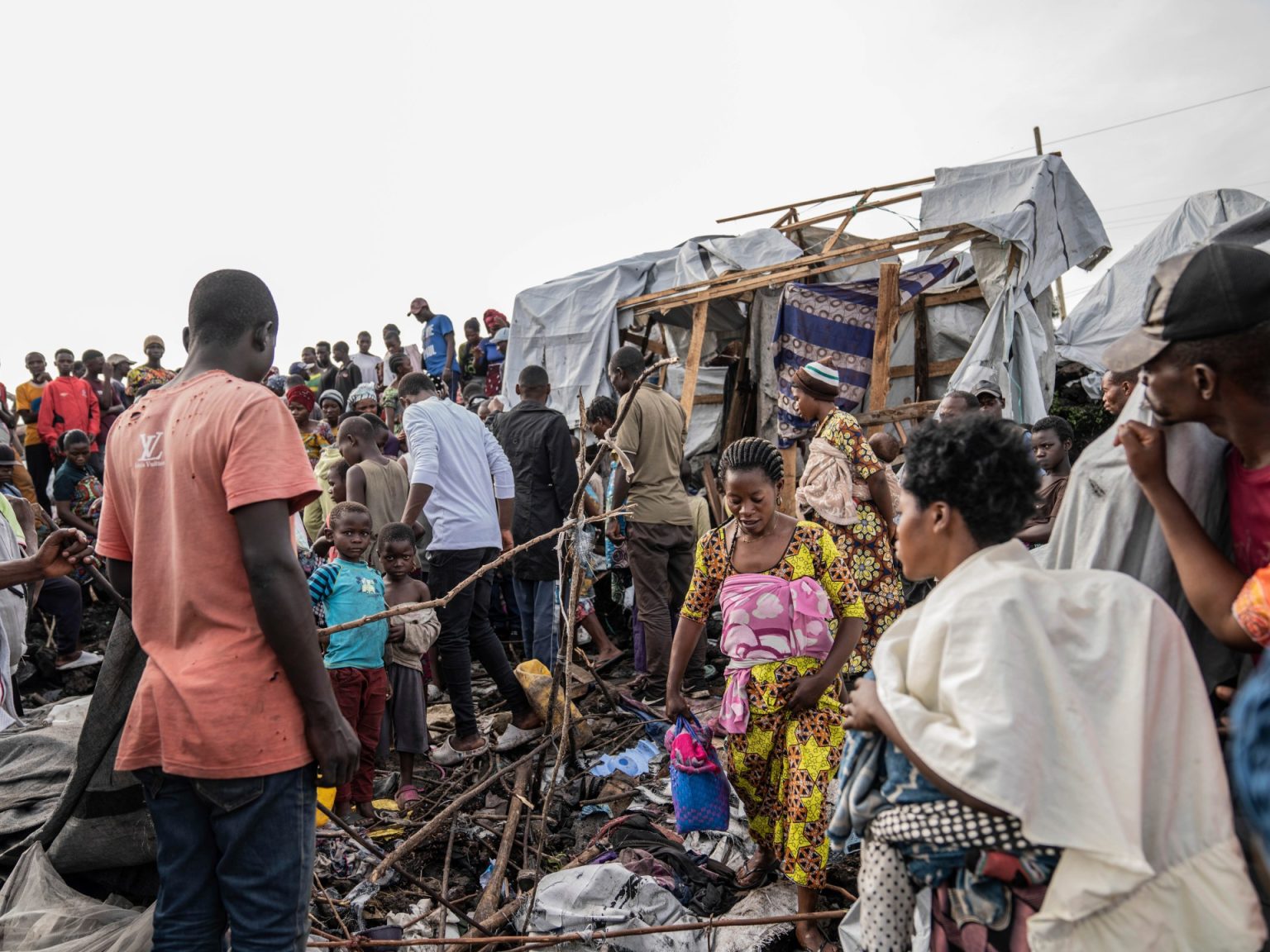The escalating conflict in the Democratic Republic of Congo (DRC) has reached a critical juncture, marked by the death of a key military figure and the imminent threat to a major city. Major General Peter Cirimwami, the military governor of North Kivu province, died from injuries sustained during frontline fighting against the M23 rebel group. The circumstances surrounding his death remain unclear, but his demise underscores the intensity of the conflict and the rebels’ growing strength. Cirimwami had visited troops near Goma, the provincial capital, just a day before his death, highlighting the proximity of the fighting to this strategically important city. The loss of such a senior military leader is a significant blow to the DRC government’s efforts to contain the M23 advance.
The M23 rebels have made significant territorial gains in recent weeks, effectively encircling Goma, a city of approximately two million people and a vital hub for both security and humanitarian operations. The capture of Sake, a strategically important town just 27 kilometers northwest of Goma, has further tightened the rebel’s grip on the region and heightened fears of an imminent attack on the city. Sake’s location on one of the last remaining government-controlled routes into Goma makes its fall particularly concerning. The rapid advance of the M23 has triggered widespread panic in Goma, as residents fear a repeat of the 2012 scenario when the rebels seized and controlled the city for over a week.
The escalating conflict has precipitated a massive humanitarian crisis, displacing more than 400,000 people this year alone, almost double the number from the previous week. The UN has expressed grave concerns about the safety and security of civilians and internally displaced persons (IDPs) in eastern DRC. Heavy bombardments have forced families from displacement sites on the periphery of Goma to flee into the city seeking safety and shelter, leading to overcrowded conditions and many living rough. The UNHCR warns that the conflict could potentially ignite a regional war, further destabilizing an already volatile region. This displacement exacerbates an already dire humanitarian situation, with limited resources and increasing needs.
International concern over the deteriorating situation is evident in the advisories issued by the United States, United Kingdom, and France, urging their citizens to leave Goma while airports and borders remain open. This underscores the perceived imminence of further violence and the potential for the security situation to deteriorate rapidly. The M23 has been accused of widespread atrocities, including rape, further highlighting the risks faced by civilians caught in the crossfire. The conflict’s resurgence three years ago has already forced more than two million people from their homes, adding to the protracted humanitarian crisis in the region. The international community’s concerns are not solely focused on the immediate security risks, but also on the potential for long-term regional instability.
The M23, one of approximately 100 armed groups operating in the mineral-rich eastern DRC, has a history of violence and territorial control. Their recent capture of towns like Minova, Katale, and Masisi, west of Goma, demonstrates their growing strength and strategic intent. The DRC government, the UN, and UN experts accuse Rwanda of supporting the M23, a claim Rwanda denies despite admitting to the presence of its troops and missile systems in eastern DRC for security reasons. This accusation adds another layer of complexity to the conflict and raises concerns about regional implications.
The fear and desperation among those fleeing the fighting are palpable. Many have lived through the M23’s 2012 offensive and are terrified of the group’s return. They express reluctance to live under what they perceive as foreign occupation, highlighting the complex political and ethnic dimensions of the conflict. While fleeing offers a measure of safety from the immediate violence, it also exposes displaced populations to new vulnerabilities in overcrowded refugee camps, including poor sanitary conditions and the risk of sexual violence. The humanitarian crisis is not merely a consequence of the conflict; it is a complex interwoven challenge that demands urgent attention and comprehensive solutions.

